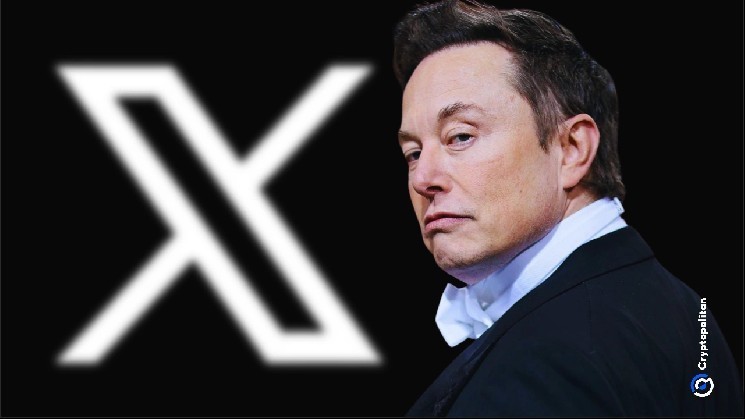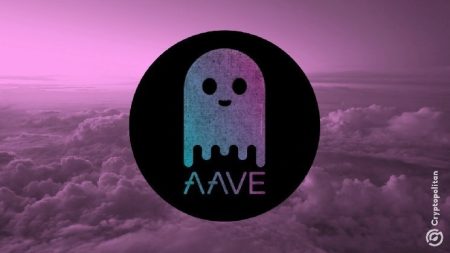Musk Unveils X Chat: A New Era of Encrypted Messaging to Challenge Industry Giants
In a bold move that signals his continued ambition to reshape digital communication, tech mogul Elon Musk has announced the development of X Chat, a new encrypted messaging platform designed to rival established services like Telegram and WhatsApp. The announcement, made during an appearance on The Joe Rogan Experience podcast last Friday, represents another significant expansion of Musk’s growing digital ecosystem and reflects his stated commitment to user privacy and security in an increasingly data-driven world.
Revolutionizing Secure Communication With Peer-to-Peer Encryption
“On X, we just rebuilt the entire messaging stack into what’s called ‘X Chat,'” Musk revealed during his conversation with Rogan, explaining that the new service has been constructed from the ground up rather than merely updating existing infrastructure. According to Musk, X Chat will utilize peer-to-peer encryption technology similar to that employed by Bitcoin, creating what he describes as “the least insecure of any messaging system” available to consumers.
This approach to security represents a fundamental difference in how digital communications are protected. Unlike traditional client-server models where messages pass through central servers, peer-to-peer encryption establishes direct connections between users’ devices, potentially eliminating vulnerable intermediary points. The technology is currently undergoing evaluation to determine its readiness for public deployment, with Musk projecting availability within “a few months.”
What particularly distinguishes X Chat from its competitors, according to Musk, is its deliberate avoidance of “hooks for advertising” — the data collection mechanisms that enable targeted advertising but potentially compromise user privacy. “WhatsApp knows enough about what you’re texting to know what ads to show you,” Musk asserted during the podcast, framing this data collection as a significant security vulnerability rather than merely a privacy concern.
The Privacy Paradox: Messaging Platforms and Data Collection
Musk’s critique of existing messaging platforms highlights the complex relationship between privacy claims and commercial imperatives in digital communication services. While Meta, WhatsApp’s parent company, maintains that it doesn’t access private conversations due to end-to-end encryption via the Signal Protocol, questions persist about other forms of data collection.
Privacy advocates have long expressed concern about so-called “metadata” — information about who users contact and communication patterns — which may not receive the same encryption protections as message content itself. Additionally, WhatsApp’s handling of chat backups, which are not automatically encrypted, represents another potential vulnerability in its privacy architecture.
WhatsApp’s own documentation acknowledges data sharing between Meta platforms for users who integrate services, stating that “we work with other Meta companies to help provide, improve, and support each other’s services.” This careful language reflects the complex reality of modern messaging platforms, where business models often depend on extracting value from user data while simultaneously promising privacy protection.
Against this backdrop, Musk positions X Chat as a fundamentally different approach to messaging. Beyond avoiding advertising mechanisms, the service aims to provide comprehensive communication capabilities, including messaging, file sharing, and audio/video calls, all within a secure ecosystem. The messaging service will be integrated into the X platform while also being offered as a standalone application, potentially broadening its appeal beyond existing X users.
Expanding the Digital Empire: Grokipedia Challenges Wikipedia’s Dominance
Musk’s communication ambitions extend beyond messaging, as evidenced by Monday’s launch of Grokipedia, an AI-powered alternative to Wikipedia developed by his artificial intelligence company, xAI. Described by Musk as an effort to “purge out the propaganda” found on the traditional crowdsourced encyclopedia, Grokipedia represents another front in his apparent campaign to reshape online information ecosystems.
Despite a brief crash following its launch, Grokipedia already features over 800,000 AI-generated entries — a substantial library, though still dwarfed by Wikipedia’s approximately eight million human-written articles. The platform presents users with a minimalist interface featuring a simple logo and search bar, focusing attention on its content rather than elaborate design elements.
Early entries reveal both the capabilities and potential biases of the platform. A Grokipedia article on Musk himself characterizes him as “a blend of innovative visionary with irreverent provocateur” and includes personal details about his dietary habits, noting his consumption of “occasional indulgences like morning donuts and multiple Diet Cokes daily.” The platform also features entries on xAI competitors like OpenAI and political figures ranging from President Trump to New York mayoral candidate Zohran Mamdani.
The Battle for Information Control in the Digital Age
Musk’s expanding digital media ecosystem, which now encompasses social media, messaging, and encyclopedia services, aligns closely with his personal political views and represents a significant consolidation of influence over online discourse. On X (formerly Twitter), Musk has reinstated right-wing content creators and expanded their reach, while using the platform as what critics describe as “a bully pulpit” to advocate for various policy positions, including government funding cuts.
This approach has drawn criticism from established figures in the information space. Wikipedia founder Jimmy Wales expressed skepticism about Grokipedia at the CNBC Technology Executive Council Summit in New York, stating, “I’m not optimistic he will create anything very useful right now.” Wales identified the underlying technology — large language models — as the core problem, describing them as “big blunders” rather than effective tools for encyclopedia creation.
Ryan McGrady, a senior research fellow at the University of Massachusetts Amherst who studies encyclopedias and social media platforms, contextualizes these developments within a broader historical pattern: “The impulse to control knowledge is as old as knowledge itself,” he notes. “Controlling what gets written is a way to gain or keep power.”
Privacy, Power, and the Future of Digital Communication
As Musk prepares to launch X Chat in the coming months, the initiative raises profound questions about the future of digital communication and the complex interplay between privacy, security, and power in the information age. While promising enhanced security through peer-to-peer encryption and freedom from advertising-driven data collection, X Chat also represents a further expansion of Musk’s influence over how people communicate and access information online.
The messaging platform’s development coincides with growing global concern about data security, algorithmic transparency, and the consolidation of digital power among a small number of influential tech leaders. Whether X Chat will deliver on its promises of superior security and privacy protection remains to be seen, but its development signals Musk’s determination to challenge established players in yet another digital domain.
For users increasingly concerned about privacy but dependent on digital communication tools, X Chat offers a potentially compelling alternative to existing services. However, as with any technology platform, the ultimate impact will depend not only on technical implementation but also on governance structures, business models, and the complex human factors that shape how technologies are actually used in practice. As the anticipated launch approaches in the coming months, both industry observers and potential users will be watching closely to see whether Musk’s latest venture truly represents a new paradigm in secure communication or simply a rebranding of familiar promises.














